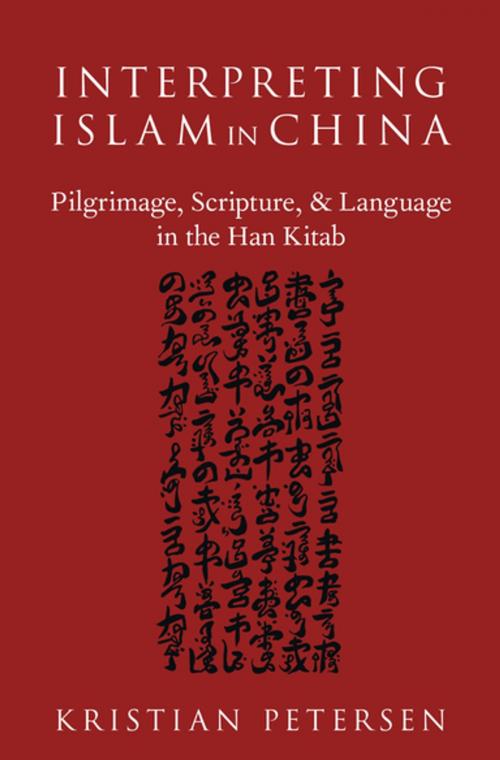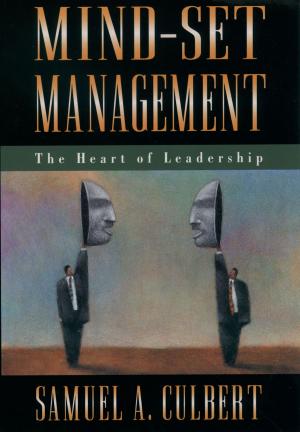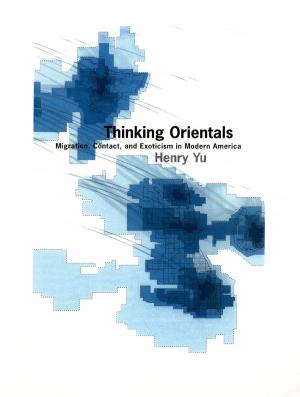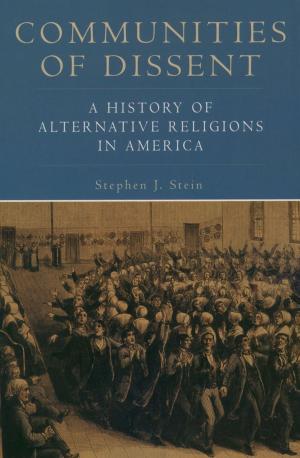Interpreting Islam in China
Pilgrimage, Scripture, and Language in the Han Kitab
Nonfiction, History, Asian, China, Religion & Spirituality, Middle East Religions, Islam| Author: | Kristian Petersen | ISBN: | 9780190634360 |
| Publisher: | Oxford University Press | Publication: | September 1, 2017 |
| Imprint: | Oxford University Press | Language: | English |
| Author: | Kristian Petersen |
| ISBN: | 9780190634360 |
| Publisher: | Oxford University Press |
| Publication: | September 1, 2017 |
| Imprint: | Oxford University Press |
| Language: | English |
During the early modern period, Muslims in China began to embrace the Chinese characteristics of their heritage. Several scholar-teachers incorporated tenets from traditional Chinese education into their promotion of Islamic knowledge. As a result, some Sino-Muslims established an educational network which utilized an Islamic curriculum made up of Arabic, Persian, and Chinese works. The corpus of Chinese Islamic texts written in this system is collectively labeled the Han Kitab. Interpreting Islam in China explores the Sino-Islamic intellectual tradition through the works of some its brightest luminaries. Three prominent Sino-Muslim authors are used to illustrate transformations within this tradition, Wang Daiyu, Liu Zhi, and Ma Dexin. Kristian Petersen puts these scholars in dialogue and demonstrates the continuities and departures within this tradition. Through an analysis of their writings, he considers several questions: How malleable are religious categories and why are they variously interpreted across time? How do changing historical circumstances affect the interpretation of religious beliefs and practices? How do individuals navigate multiple sources of authority? How do practices inform belief? Overall, he shows that these authors presented an increasingly universalistic portrait of Islam through which Sino-Muslims were encouraged to participate within the global community of Muslims. The growing emphasis on performing the pilgrimage to Mecca, comprehensive knowledge of the Qur'an, and personal knowledge of Arabic stimulated communal engagement. Petersen demonstrates that the integration of Sino-Muslims within a growing global environment, where international travel and communication was increasingly possible, was accompanied by the rising self-awareness of a universally engaged Muslim community.
During the early modern period, Muslims in China began to embrace the Chinese characteristics of their heritage. Several scholar-teachers incorporated tenets from traditional Chinese education into their promotion of Islamic knowledge. As a result, some Sino-Muslims established an educational network which utilized an Islamic curriculum made up of Arabic, Persian, and Chinese works. The corpus of Chinese Islamic texts written in this system is collectively labeled the Han Kitab. Interpreting Islam in China explores the Sino-Islamic intellectual tradition through the works of some its brightest luminaries. Three prominent Sino-Muslim authors are used to illustrate transformations within this tradition, Wang Daiyu, Liu Zhi, and Ma Dexin. Kristian Petersen puts these scholars in dialogue and demonstrates the continuities and departures within this tradition. Through an analysis of their writings, he considers several questions: How malleable are religious categories and why are they variously interpreted across time? How do changing historical circumstances affect the interpretation of religious beliefs and practices? How do individuals navigate multiple sources of authority? How do practices inform belief? Overall, he shows that these authors presented an increasingly universalistic portrait of Islam through which Sino-Muslims were encouraged to participate within the global community of Muslims. The growing emphasis on performing the pilgrimage to Mecca, comprehensive knowledge of the Qur'an, and personal knowledge of Arabic stimulated communal engagement. Petersen demonstrates that the integration of Sino-Muslims within a growing global environment, where international travel and communication was increasingly possible, was accompanied by the rising self-awareness of a universally engaged Muslim community.















